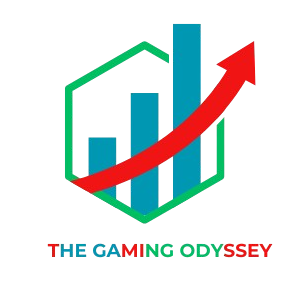Online gaming has grown into a cultural phenomenon, shaping how millions of people around the globe spend their time, interact with others, and even express their creativity. What once began as simple multiplayer text-based games has evolved into expansive, immersive worlds powered by cutting-edge technology. Today, online gaming is not just a form of entertainment but a powerful medium for connection, competition, and innovation.
At the heart of online gaming’s appeal is its ability to connect people across the world. Whether through cooperative missions, competitive matches, or casual social spaces, players interact in real-time, creating bonds that often transcend the boundaries of geography and language. Games like World of Warcraft and Among Us offer unique ways to collaborate and communicate, fostering friendships and communities that thrive both in-game and mentoz4d beyond.
The social dimension of online gaming has been further amplified by platforms like Discord, Reddit, and Twitch. These spaces allow players to share experiences, discuss strategies, and celebrate victories together. Twitch, in particular, has transformed gaming into a spectator sport, where players stream their gameplay to live audiences, blending entertainment with community interaction. This dynamic ecosystem has turned gaming into a shared cultural experience, bringing people closer together.
Another driving force behind online gaming’s popularity is its competitive nature. Esports, or competitive gaming, has emerged as a global industry, drawing millions of viewers to tournaments with massive prize pools. Games like League of Legends and Call of Duty have turned talented players into celebrities and professional athletes, while streaming platforms provide fans with a front-row seat to thrilling competitions. This competitive aspect has not only elevated gaming’s status but also inspired new generations to pursue gaming as a serious career path.
Creativity is also a hallmark of online gaming. Titles like Minecraft, Roblox, and The Sims empower players to design their own worlds, characters, and experiences. This freedom to create has turned gaming into a collaborative art form, where players express themselves and share their creations with others. Game developers, too, are leveraging this creativity, often integrating player-generated content into their platforms and encouraging active participation in the evolution of games.
Technological advancements continue to shape the landscape of online gaming. High-speed internet, realistic graphics, and innovations like virtual reality (VR) and augmented reality (AR) have made gaming more immersive than ever before. Cloud gaming services such as Xbox Cloud Gaming and Nvidia GeForce NOW eliminate the need for expensive hardware, allowing players to access games on virtually any device. These developments have made gaming more accessible and inclusive, inviting a wider audience into the digital world.
However, online gaming is not without challenges. Issues like cyberbullying, addiction, and data privacy concerns remain prevalent in the industry. Developers and communities are working to combat these problems by implementing better moderation tools, educational campaigns, and systems to promote healthy gaming habits. Creating safe, inclusive spaces for players is essential to maintaining the positive aspects of online gaming.
In conclusion, online gaming is much more than a source of entertainment. It is a dynamic and evolving platform that connects people, fuels creativity, and drives technological innovation. As the industry continues to grow, it promises to offer even more opportunities for collaboration, competition, and cultural exchange, solidifying its place as a cornerstone of modern digital life.
